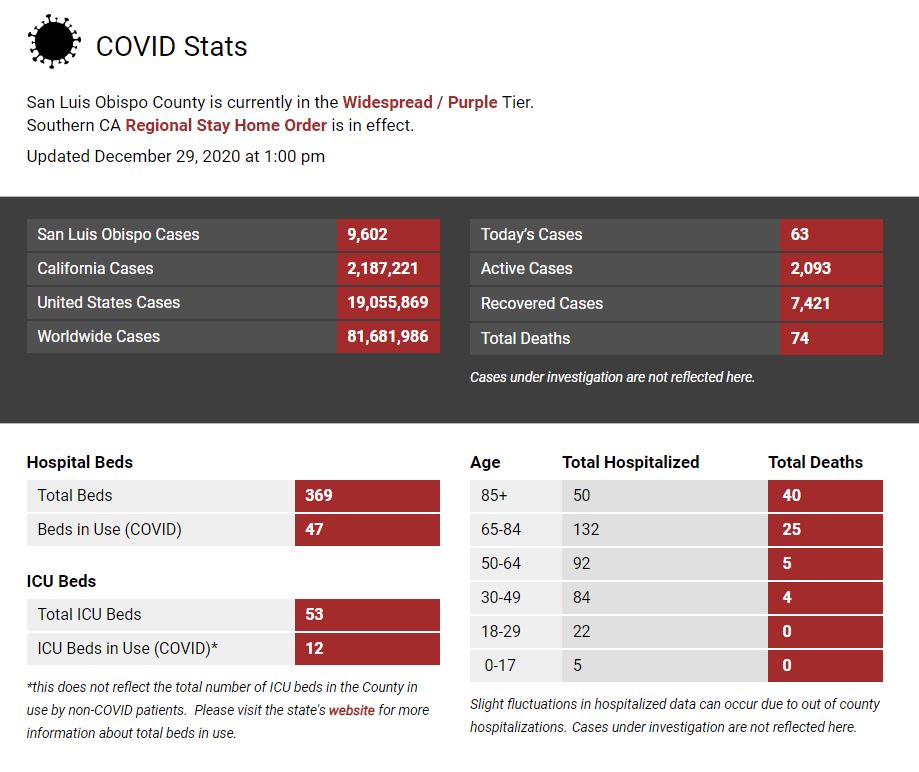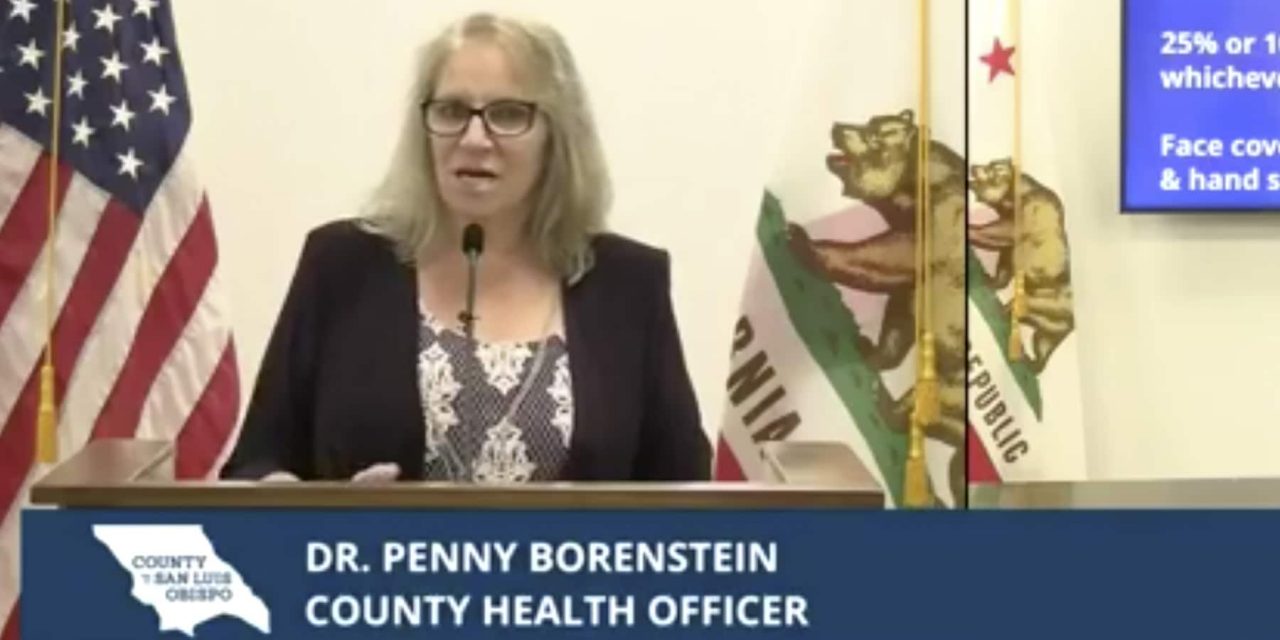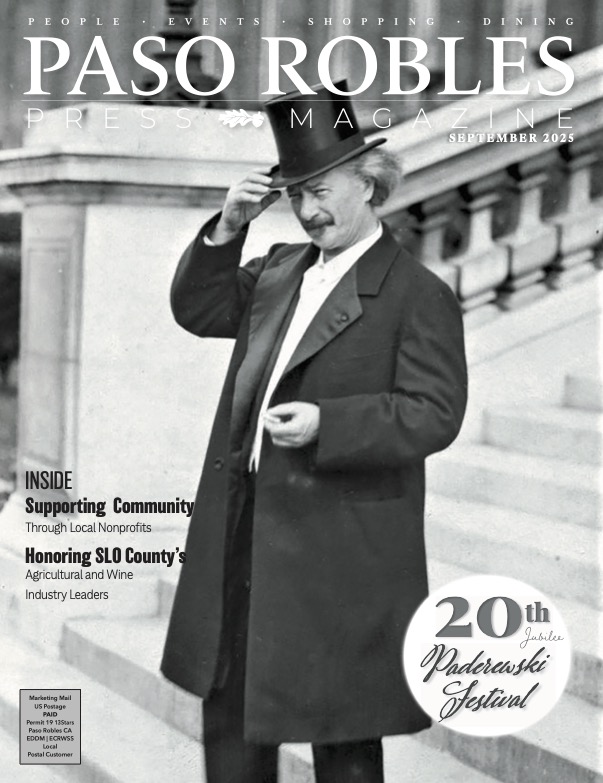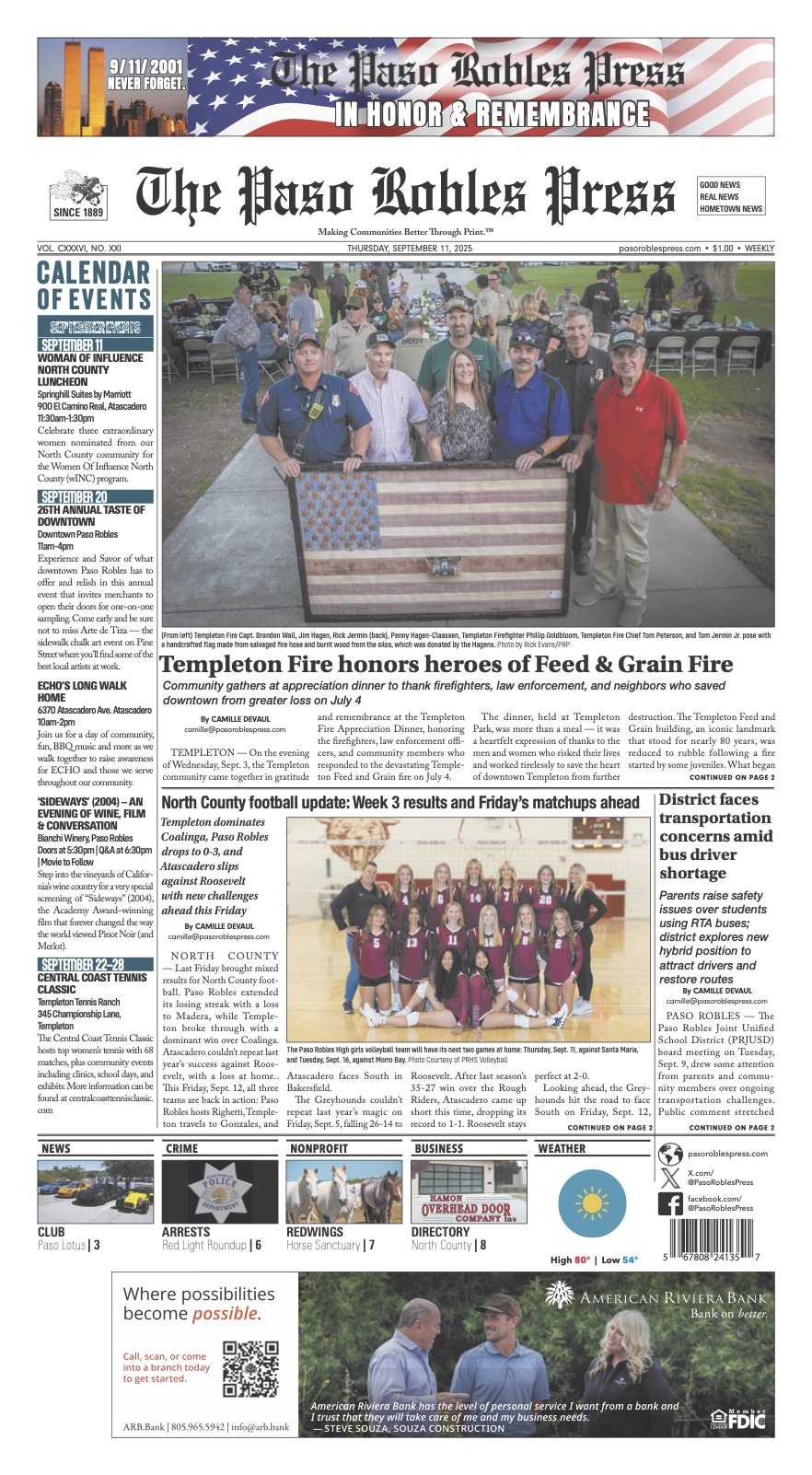SAN LUIS OBISPO — The State extended its Regional Stay at Home Order for the Southern California Region, which includes San Luis Obispo County, on Tuesday, Dec. 29.
SLO County’s cases have increased in December, resulting in more deaths and hospitalizations. However, SLO County’s ICU capacity rate remains higher than the rest of the Southern California Region, and local officials have petitioned the State to create a new Central Coast Region with Santa Barbara and Ventura counties.
San Luis Obispo County health officials say that SLO County’s total COVID-19 case count will likely surpass 10,000 cases before the end of December. The County Public Health Department reported SLO County’s highest number of hospitalized cases (59), including ICU cases (12) today. The County also reported that 36 local community members died of COVID-19 since the start of December, which makes up 49 percent of all local COVID-19 deaths.
“This pandemic is taking a human toll here in SLO County, and we need every single person to do everything you can to stop the surge and protect the lives of those around us,” said Dr. Penny Borenstein, County Public Health Officer. “Remember, wear your mask in public, keep your distance from others, stay home when you’re sick, and don’t intermingle with other households.”
The order was extended in San Luis Obispo County because the Southern California Region’s ICU capacity projected out four weeks (from day 22 after the Regional Stay Home Order started in the region) is less than 15 percent. The order will remain in effect in SLO County until the region’s projected ICU capacity is equal or greater than 15 percent. State officials say this will be assessed approximately twice a week.
The State’s Regional Stay Home Order took effect in SLO County on Dec. 6 and is intended to help stop the surge of COVID-19 cases and prevent overwhelming regional ICU capacity. Under the order, San Luis Obispo County residents are instructed to stay at home as much as possible and to stop mixing between households. It allows access to critical services and allows outdoor activities to preserve Californians’ physical and mental health.
For more information, visit ReadySLO.org.
















